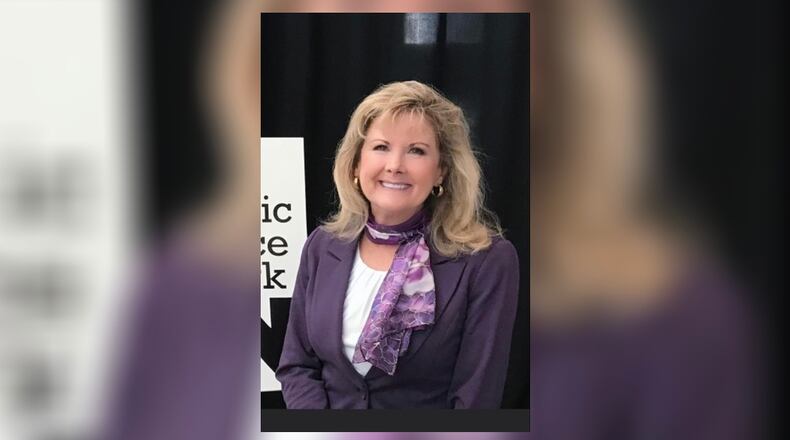The Crouchers started by educating themselves on dating violence and the warning signs of abuse. They were alarmed to learn that one in three girls and one in 10 boys have been a victim of teen dating violence. It became their mission to empower local teens with the knowledge that would keep them safe. They created a presentation about dating violence and the warning signs of abuse and went into area schools. They were tireless in their efforts and never turned down a request, even when Jim’s health started to deteriorate.
I was privileged to work with them and to help their work culminate in the successful passage in 2009 of The Tina Croucher Act, a law named after their daughter that would now bring this education to every high school and middle school in Ohio
We hope all schools are complying. We know that 36 of Ohio’s domestic violence programs were called upon last year to provide presentations to almost 37,000 students, including the Artemis Center and YWCA Dayton. Kudos to the programs and the schools calling upon them. Now we must make sure the rest of Ohio’s 844,406 students in grades 7-12 are being taught that love should not hurt.
You can help! Begin with your Parent-Teacher Association or school board to see if your school offers teen dating violence prevention education.
Prevention education in schools is vital because teens typically don’t tell their parents. Studies indicate only 1/3 of teens in an abusive relationship confided in someone.
Jim and Elsa didn’t know.
They learned the truth at Tina’s funeral when some of her devasted friends shared that they had known. Even if she did tell, at the time Tina would not have been able to seek protection from the courts. A law passed in 2010 now allows a teen victim in Ohio to obtain a civil protection order against a minor or juvenile abuser.
Relationship abuse includes physical (hitting, slapping, pushing, punching, choking/strangling); sexual (forcing the victim to engage in unwanted sexual contact); monitoring, controlling, and stalking (continually calling, texting, and/or following the victim); and isolating (keeping the victim from spending time with others).
The most common abuse is verbal/emotional, including criticizing the victim or their friends, and threatening to harm the victim, themselves, or others if the victim doesn’t do what the abuser wants.
Warning signs your teen is in an abusive relationship include a possessive partner; change in habits, hobbies, way of dressing; unexplained injuries; constant checking in with the partner; frequent apologies and getting serious too quickly.
Healthy relationships are based on respect and equality. You feel safe, supported, happy, and excited to be around each other. You have privacy and lives that are separate from each other but can come together and be a unit at any time.
The roots of adult domestic violence can begin in childhood and escalate in the teen years. Teen dating violence has profound impacts on lifelong health, opportunity, and well-being. Teens who experience abusive relationships are twice as likely to experience abuse as adults, and report increased substance use and suicidal feelings later in life.
In 2013 the Ohio Domestic Violence Network created the Croucher Family Award to honor pioneers in domestic violence education. Each year, the award is given to one or more individuals who have shown outstanding advocacy and leadership. Please honor their memories. Start the conversation with your teen. To learn more, visit www.loveisrespect.org or the Ohio Domestic Violence Network’s website at www.odvn.org.
Bridget Mahoney is the Immediate Past Board Chair of the Ohio Domestic Violence Network. She is a former television news anchor and domestic violence survivor.
About the Author
